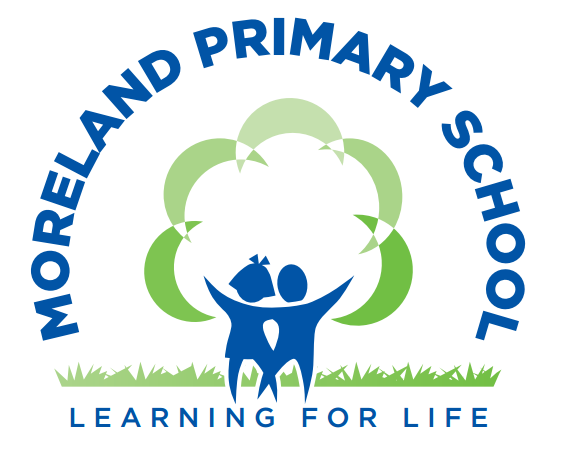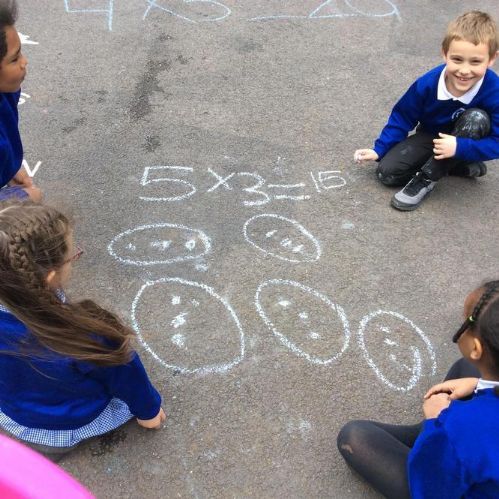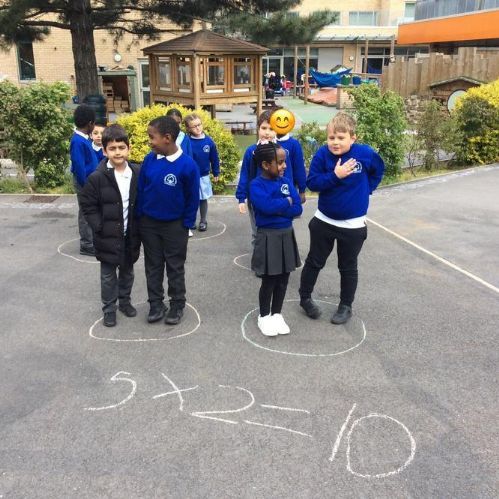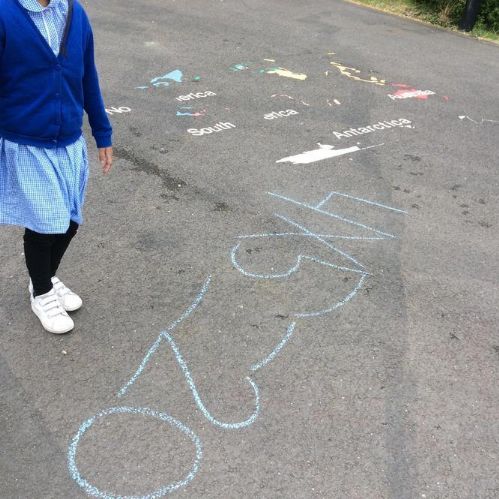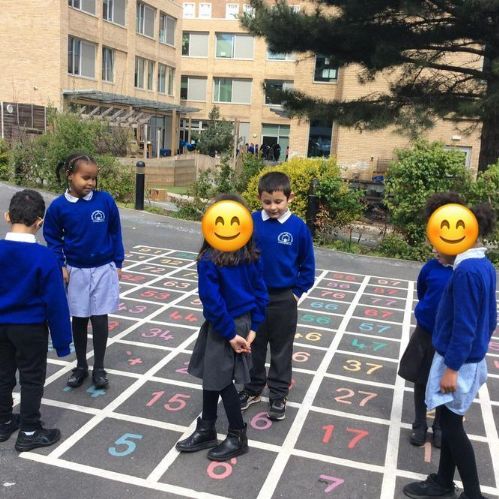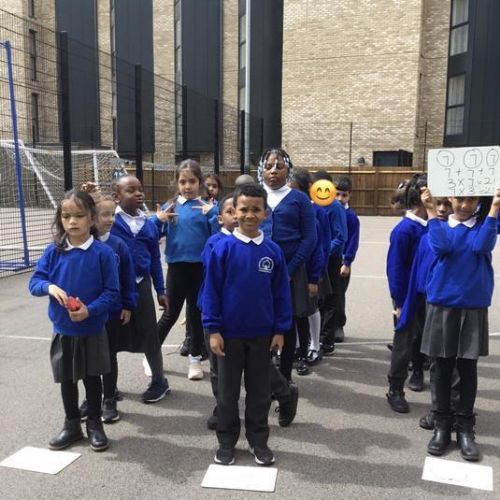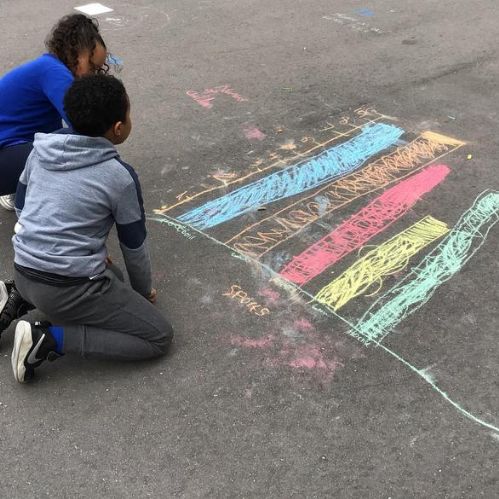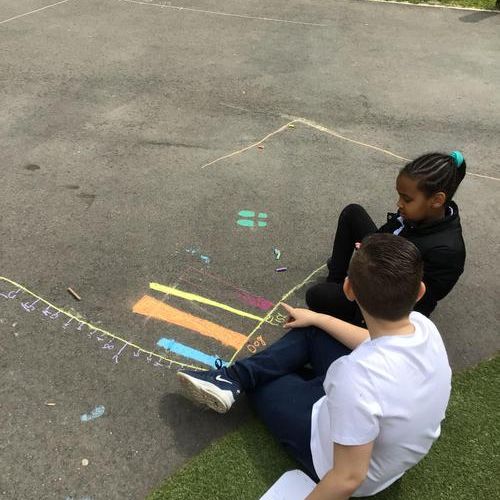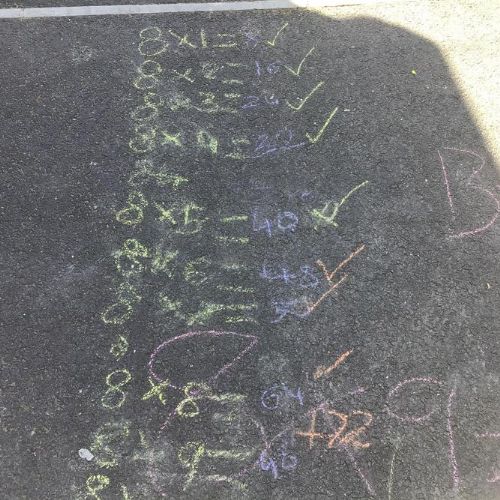Maths
Intent
At Moreland, we want our children to receive a high-quality mathematics education that ensures that all pupils are fluent in the fundamentals of mathematics, have the ability to reason mathematically and can apply their knowledge and understanding to solve problems. We also want them to have an appreciation of the power of mathematics and a sense of fun and curiosity about the subject.
Implementation
At Moreland, children study mathematics daily using the nationally recognised White Rose Maths scheme. This scheme ensures full curriculum coverage and provides daily opportunities to develop children's reasoning and problem solving skills. The White Rose curriculum is a cumulative curriculum, meaning that topics are covered in depth and then revisited a number of times within other topics. For example, once children have completed their addition and subtraction units, these skills are revisited within their measurement and geometry units.
As well as daily maths lessons, pupils also have a focused fluency lesson once a week working on the key skills needed for their year group. Daily 'Flash Back Four' supports children's recall of key facts and regular times tables practice supports children's number fluency. We encourage all children to practise their times tables using Times Tables Rockstars and we celebrate their achievements in assemblies.
We have high expectations of every child at our school and are committed to closing the attainment gap and ensuring that no child is left behind. As such, our expectation is that the large majority of pupils will progress 'through the programmes of study at broadly the same pace’ (Ofsted Handbook, September 2015). Significant time is spent ensuring children have a deep understanding of the key mathematical ideas before moving on to the next part of the curriculum.
Our maths teaching follows the CPA (concrete, pictorial and abstract) approach as demonstrated in the calculation policy. This support pupils' understanding from EYFS - Year 6. Concrete is the "doing" stage and teachers will ensure that pupils have the opportunity to use manipulatives to support their understanding of a new concept. Pictorial is the "seeing" stage and visual representations are used to support children's understanding, enabling them to visualise abstract problems. Both concrete and pictorial representations are essential to ensure children have a deep understanding of abstract methods. Abstract is the "symbolic" stage and pupils will progress to this stage once they can demonstrate their understanding within the previous stages.
Challenging our pupils in maths lessons is very important to us at Moreland. Our lessons provide opportunities for those children who have grasped the new content to explore sophisticated problems across a range of contexts including open-ended problems. Children will also have the opportunity to apply their mathematical skills across the curriculum, for example in Geography or Science.
At Moreland, we ensure that we pre-teach, discuss and display key mathematical vocabulary as set out in our vocabulary progression document. Having a secure understanding of mathematical language supports our pupils' confidence and ability when reasoning and problem solving.
Impact
Children believing that they can achieve in maths is key to success. Our chosen scheme, lesson structures and teaching strategies ensure that all children experience success, challenge and maths in a variety of contexts suited to their needs. This enables students to leave primary with a love for the subject and the confidence and desire to continue their learning.
We ensure that we incorporate our 5 Cs (Learning Behaviours): Collaboration, Critical Thinking, Communication, Compassion and Creativity. Our approaches in maths lessons support children in developing these skills.
Regular and ongoing assessment informs planning and teaching. Teachers adapt planning depending on the needs of their class and ensure targeted interventions are put into place for any child who needs extra support in a specific area.
Supporting at Home
Weekly number fluency homework is sent out for every class. Please support your child with this and speak to the class teacher if you have any concerns or need support.
We use Times Tables Rockstars (Year 2 - 6) and NumBots (Year 1 - 2) to support children's number fluency. These are available online or as an app (both are free). Children have the logins in their homework books. We recommend encouraging your child to play on these apps for short, regular sessions (e.g. for 10 minutes, 3x a week).
White Rose Maths released homework booklets for each year group. They are linked below, but if you would like a paper copy then please speak to your child's class teacher. The booklets link to the most of the topics covered throughout the year.
-
Times Tables Rockstars
Children have individual logins for Times-Tables Rock Stars. Every week in assembly we announce the most improved players and fasted players.
-
Homework Booklets - White Rose
There are homework booklets available here for each year group. They cover each topic covered throughout the year.
Examples of Outdoor Learning in Maths
